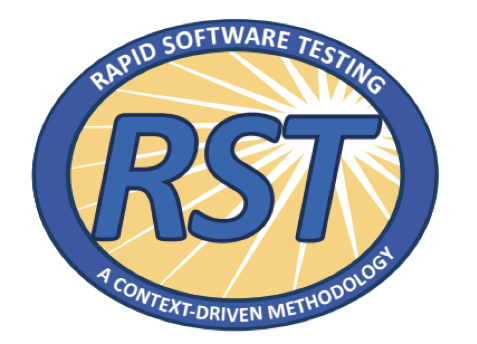Everybody knows about James Bach, Michael Bolton, Lisa Crispin, Elisabeth Hendrickson, Gojko Adzic and other famous test bloggers. If not, this is a serious wake up call: WAKE UP! Open your eyes and start reading some of these excellent blogs about testing. But these are many other blogs on testing worthwhile reading. I have a large list of blogs by colleagues which I read regularly. I went through this list and selected these fairly unknown bloggers for you. I invite you to read their blogs, comment on them and come back often. As you can see it is an international community!
1. Australia: David Greenlees – Martial Tester
David is from down under and I “know” him form the Miagi-Do School of software testing. He has a goal in his testing life to get mentioned on the commendations list by James Bach. A great goal and while typing this and reading through the list, I want to get mentioned in that list too!
2. Belgium: Zeger van Hese – Testsidestory
Fellow DEWT, test friend and honorary Dutch. Did I mention that Zeger is program chair for EuroStar 2012? How can a EuroStar program chair be so unknown while is a) as great and fun guy to hang out with and b) a great tester who has done awesome presentations and writes great blog posts? “On being context-driven” and “Finding Porcini” are some of the great posts I like.
3. Canada: Iain McCowatt – Exploring Uncertainty
Iain was one of the trainers when I took BBST foundations last April and I started to read his blog. He did a great series on regression testing and writes well thought blog posts. Can anyone tell me how to pronounce his name?
4. Finland: Pekka Marjamäki – How do I Test
Pekka is an interesting guy. I “met” him via twitter and a while later I found his blog. Interesting stuff! Even Rex Black has commented recently on one of his posts. I still have to talk to him about Testing with the stars. Read about it on his blog. Very interesting concept.
5. Japan: Ben Kelly – Testjutsu
I met Ben in Sweden at Let’s Test in 2012 where he did a great presentation called The Testing Death. Ben is a thoughtful person of no so many words but still fun the hang around with. Give his blog a read. He isn’t very active recently but you still can find some jewels there.
6. Netherlands: Jean-Paul Varwijk – The wondrous world of software testing
He cannot be absent in this list. My fellow DEWT and testing buddy at work. Jean-Paul has an impressive track record the last year: he managed to get a black belt at the Miagi-Do School of software testing while doing his introduction challenge (which is very rare), he impressed James Bach with his answer to a challenge given to him over dinner and he does a couple of national and international talks on big testing conference all over Europe this year. A guy to keep an eye on…
7. Netherlands: Joep Schuurkens – The testing curve
I met Joep at Let’s Test conference in Sweden and found out he is actually Belgium 😉 Joep is context-driven and writes about that on his blog, his posts on The Seven Basic Principles of the context-driven school are great! Joep is also a great guy to hang out with (at least on a conference he is).
8. Romania: Jari Laakso – Software Testimonies
Jari is hyperactive on twitter and loves puzzles! He creates his own very challenging puzzles and blogs about that. Find him on skype and he will have you puzzling for at least a day. This guys like to get challenged, read this post about “18 Testing Challenges from Santhosh Tuppad”.
9. Scotland: Darren McMillan – Better Testing
Darren is been around quite a while and isn’t very active lately. But he is the king of mind mapping in testing. His blog post “Mind Mapping 101” has 53 comments and is awesome, just like “Essential mind mapping: Rapid test design”. If you want to do something with mind mapping come to my tutorial on Agile Testing days OR read Darren’s blog. He by the way also writes about other topics.
10. Sweden: Johan Jonasson – Testing Thoughts
Not a very original name for a blog since Shmuel Gershon uses the same name for his great blog. [Update: Johan changed the name to: “Let’s talk testing”]. Johan is one of the people behind Let’s Test and after reading all the posts on the conference he must have thought he is able to do that too, well have a look yourself. I like his post on “Thinking Visually” very much.
11. Sweden: Rikard Edgren, Henrik Emilsson and Martin Jansson – Thoughts form the Test Eye
These gentlemen were also highly involved in Let’s Test and are blogging for some time now. They get help from Torbjörn Ryber and Henrik Andersson who also write interesting stuff. This blog is stuffed with great posts, hours of interesting reading guaranteed.
BTW: download the two free books written by Rikard and Torbjörn! Both highly recommended!!
12. Sweden: Simon Morley – The Tester’s Headache
Simon has a blog since 2009 and I am reading his stuff since a year or maybe a little more. I met him at Agile Testing Days last year and had some great conversations with him. Simon has a sharp mind and that shows in his writings…
13. Switzerland: Ilari Henrik Aegerter – ilari.com
Ilari lives in Switzerland and does online coaching like James and Anne-Marie and he does a great job. Ilari is fun and writes interesting stuff. Have you answered his question in the post “Major Consensus Narrative, Asking Supposedly Hyper-Smart Questions and Being Context-Driven” already?
14. UK: Duncan Nisbet – Bespoke Testing
I met Duncan at Let’s Test in Sweden last May but before that we did BBST together and we are both in Miago-Do. Duncan is a polar bear: when everybody was cold in Sweden and was wearing jackets and sweaters, Duncan still walked around in shorts and on flip-flops. He wrote a nice post about working together on-line: “Collaboration In Testing”
15. UK: Tony Bruce – Have you ever danced with the tester?
I met Tony last year at Test Bash and over dinner I found out he is a great guy. Cheerful, subtle and fun. Tony is the driving force behind the test gatherings in the UK. Meetups of testers in a bar with short talks and lots of beer! One of his last post is great: “Which do you have? A job or a career?”

 pares these tasks to the testing activities according to TMap. In this part of his talk he covers the role description, tasks in testing and its importance to the tester. Then he talked about the developments in the testing profession covering developments in approach, the testing craft itself and the systems under test. The latter coincided with the theme of this event “The Cloud”. In the last part of his talk Leon gives his view on the impact of these developments on the role of a test manager. I have summarized them in the table below.
pares these tasks to the testing activities according to TMap. In this part of his talk he covers the role description, tasks in testing and its importance to the tester. Then he talked about the developments in the testing profession covering developments in approach, the testing craft itself and the systems under test. The latter coincided with the theme of this event “The Cloud”. In the last part of his talk Leon gives his view on the impact of these developments on the role of a test manager. I have summarized them in the table below.

Recent Comments